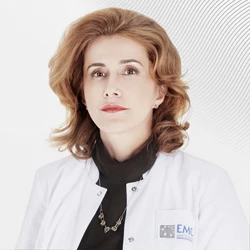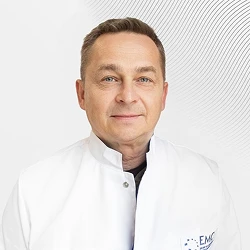Pregnancy is generally assessed as a successful emotional period for the woman and the family as a whole. At the same time, in some women, the period of pregnancy and the state of motherhood increase the risk of developing or progressing mental disorders. Numerous studies have shown that pregnancy does not protect against the development of severe depression or worsening of existing problems. Women who cancel treatment on their own or reduce drug dosages are at high risk. Women are 2 times more likely to be depressed than men. Not surprisingly, depression is one of the most common medical complications during pregnancy and the postpartum period.
Postpartum depression
-
A decrease in mood occurs in 30-75% of women in the postpartum period (3-5 days after giving birth).
-
Postpartum depression occurs in 10-15% of women (usually 3-6 months after giving birth).
Risk factors for depression during pregnancy:
-
everyday stresses, including adverse events,
-
lack of social support,
-
domestic violence,
-
history of depression in previous pregnancies,
-
maternal anxiety,
-
unwanted pregnancy,
-
ambivalence towards pregnancy,
-
low income,
-
low level of education,
-
smoking,
-
absence of spouse/partner (single mother),
-
a history of postpartum depression and a decrease in dosage or self-withdrawal from taking antidepressants.
Potential complications of depression during pregnancy
Maternal
-
Difficulties in taking care of a child.
-
Smoking, alcohol abuse, or other drugs.
-
Decreased appetite and low body weight.
-
Sleep disorders.
-
Anxiety.
-
Aggravation of depression.
-
Suicidal thoughts or attempts.
-
Refusal to breastfeed.
-
Disruption of mother-newborn communication.
-
Postpartum depression.
The impact of depression on fetal development - possible negative effects:
-
teratogenic effect,
-
spontaneous miscarriages,
-
preeclampsia,
-
fetal growth retardation,
-
premature birth,
-
low birth weight.
During pregnancy, many women experience increased levels of anxiety and emotional lability. In the first 3 months after giving birth, the risk of developing a mental disorder increases several times. Depression occurs in 80% of cases. Most mental disorders occur in women of childbearing age, and therefore pregnancy often occurs while taking psychotropic drugs. Abrupt withdrawal of psychotropic drugs often leads to a relapse of mental illness – it is necessary to conduct a thorough assessment of the risks and benefits to the mother and fetus from taking medications and relapsing mental disorder. Psychotropic drugs that are as safe as possible for the fetus should be used in women of childbearing age and pregnant women. In some cases of mild and moderate anxiety and depressive disorders, cognitive behavioral therapy is the first choice.
Principles of therapy
-
Involvement of future parents in decision-making.
-
The use of minimum effective doses.
-
The use of the safest drugs.
-
Do not prescribe multiple medications at the same time.
-
Adjust the dose during pregnancy.
-
Ensure adequate screening of fetal development.
-
Inform obstetricians and gynecologists about possible changes in mental status.
-
To evaluate the development of withdrawal syndrome in a newborn child.
Breastfeeding and drug therapy
-
All psychotropic drugs enter breast milk. The concentration depends on the psychopharmacological properties of the drug.
-
Since most psychotropic drugs are metabolized by the liver, and newborns under 2-3 months of age have insufficient liver enzyme activity, premature infants and newborns have an increased risk of toxic effects.
-
The concentration of antidepressants and tranquilizers in mother's milk is quite low, especially when using low doses. When planning a temporary breastfeeding regime, it is possible to minimize ingestion into the child's body, but it is impossible to exclude toxic effects.
-
The concentration of normotimics (lamotrigine, carbamazepine, lithium preparations, valproic acid) in breast milk is very high (20-50% of the concentration of maternal blood serum).
Psychotherapeutic techniques
-
Cognitive behavioral therapy.
-
Interpersonal psychotherapy.
-
Supportive psychotherapy.
-
Family counseling.
At the European Medical Center, all pregnant women in need of psychological support are accompanied by qualified obstetricians and gynecologists together with psychiatrists.
Within the framework of EMC Mom Schools you can ask any questions you might have to our psychiatrists.
.webp)







.webp)



.webp)



.webp)
